UK Mother's Day: Three Cultures, One Table
Notes from the Table Issue 3 - April 03, 2025
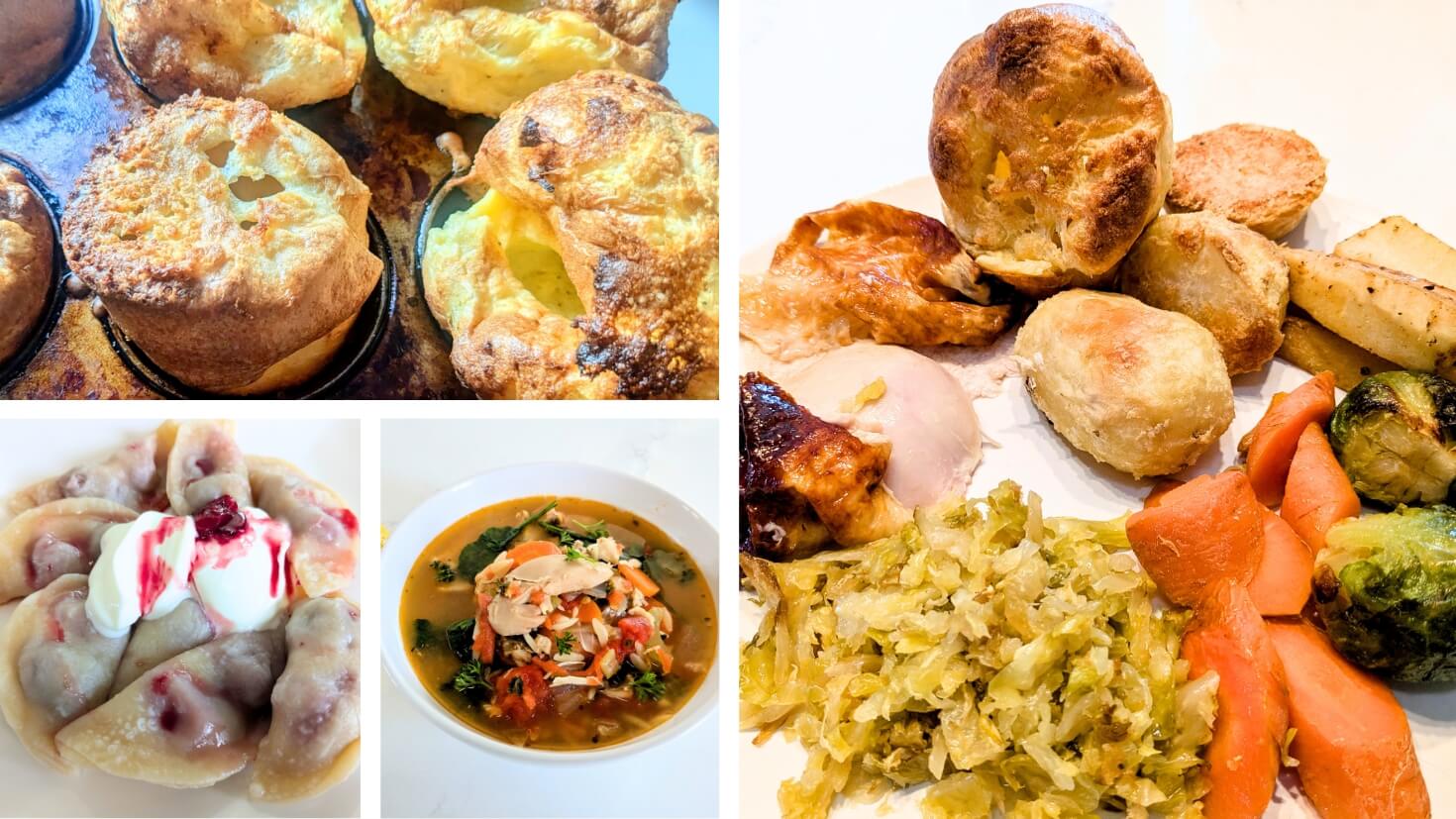
This past Sunday was Mother’s Day in the UK, and I’ve been thinking about my mother-in-law. She lives in England, where she raised my husband and built a life shaped by the intersection of three cultures.
She was born and raised in Calabria, a region in southern Italy. As a young adult, she left home for the UK and married a Ukrainian man. She became remarkably trilingual, learning both English and Ukrainian, neither of which she grew up with. She built a life in a new country and raised her children in her husband’s cultural tradition. Imagine that: an Italian woman raising her family primarily in Ukrainian, while navigating life in an English-speaking country.
Her story is a reminder of how much strength it takes to build a life across cultures. She blended food traditions not for show but out of love and commitment. There was no blueprint, just adaptability, intuition, and deeply held values.
This year, from the US, I wanted to honor the mix of traditions she brought together. These are traditions I’m carrying forward by choice and by love.
🇬🇧 The British Side: A Sunday Roast with Feeling
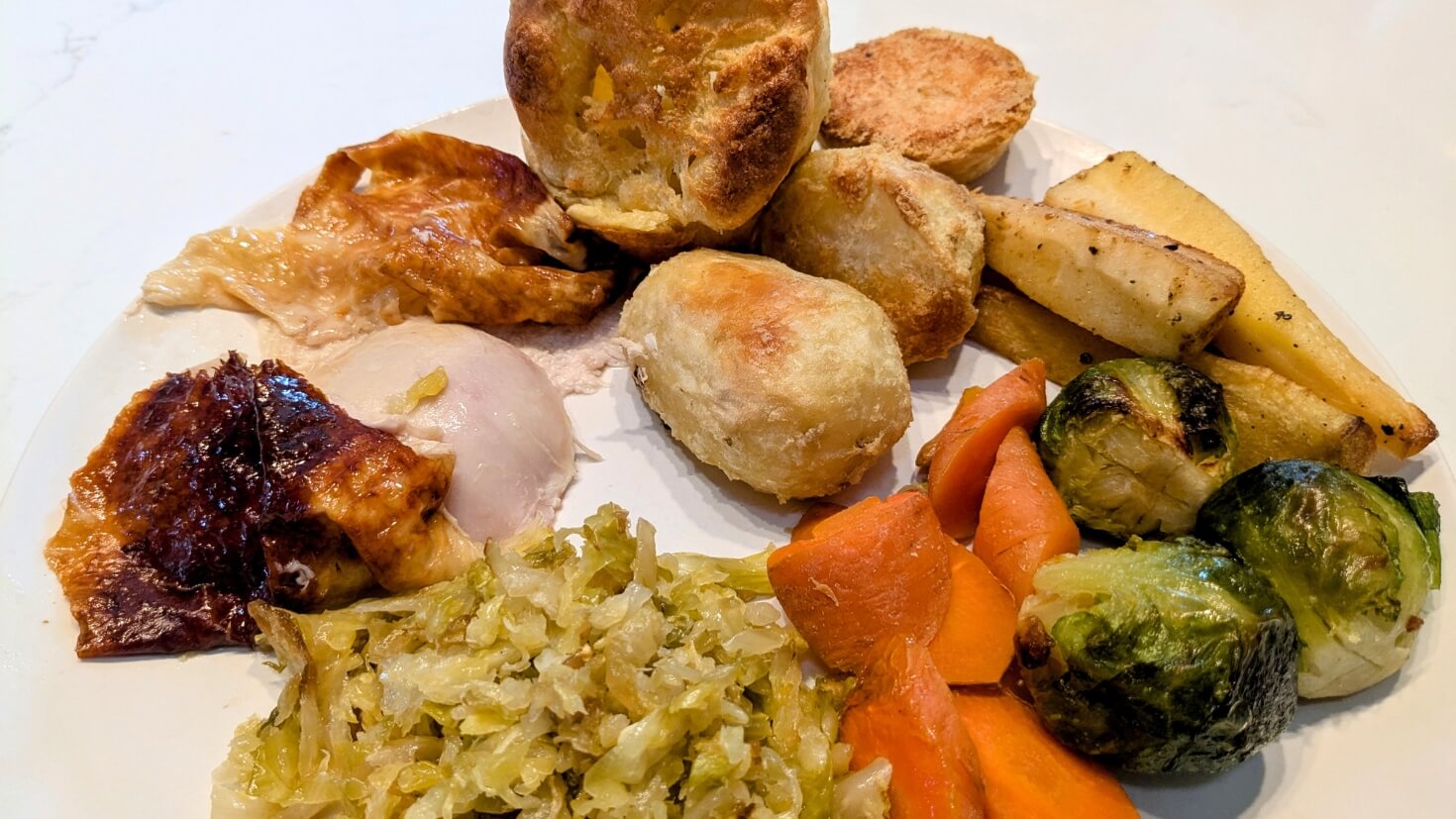
The Sunday roast is a mainstay of British food culture. Served at lunchtime in homes or pubs, it includes roasted meat, potatoes, vegetables, and Yorkshire pudding or stuffing.
When I make a roast dinner here in the US, my husband connects with his upbringing and with his mother, too. When he tells me my roast dinner tastes just like hers, it’s the highest compliment. It’s not about perfection, but about the feeling it brings.
Our roast dinner also includes sauerkraut, a nod to Ukrainian heritage, which you wouldn’t normally find on a traditional English plate.
I didn’t grow up making Yorkshire puddings or eating them, but I’ve taught myself, experimented, and failed many times. In the past year or so, I’ve been trying to really master them. Getting them to rise sometimes feels like luck, but I hope that the more I do it, the more consistently I’ll find success. It takes practice, but it also takes presence and the willingness to fail sometimes.
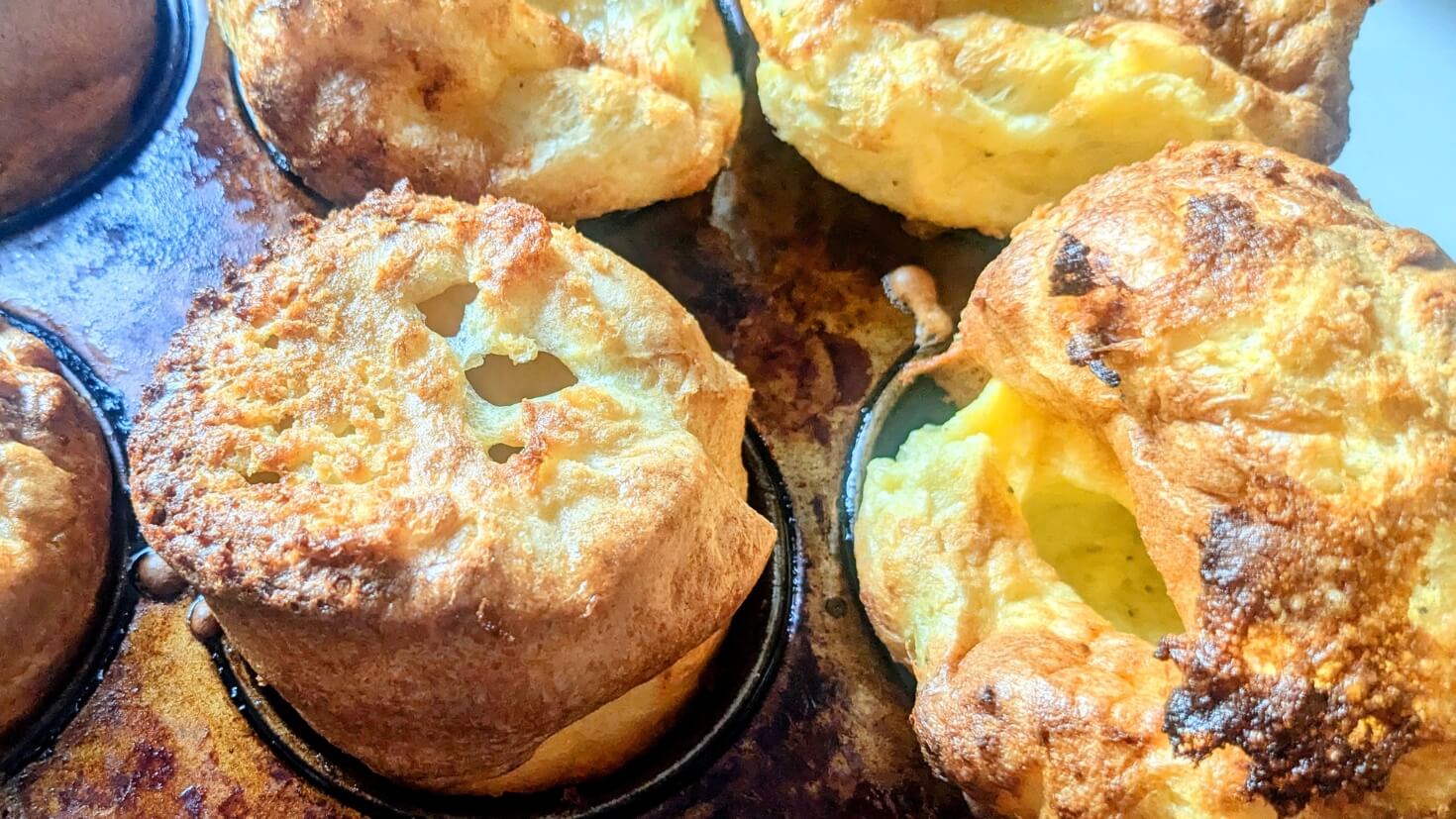
See my Yorkshire pudding recipe here.
On Sunday, I made a roast chicken marinated in some leftover buttermilk. From a practical standpoint, I had buttermilk to use up, but I also wanted to explore something new beyond the usual pancakes or biscuits. The result surprised me in the best way. The chicken was extremely tender, juicy, and flavorful.
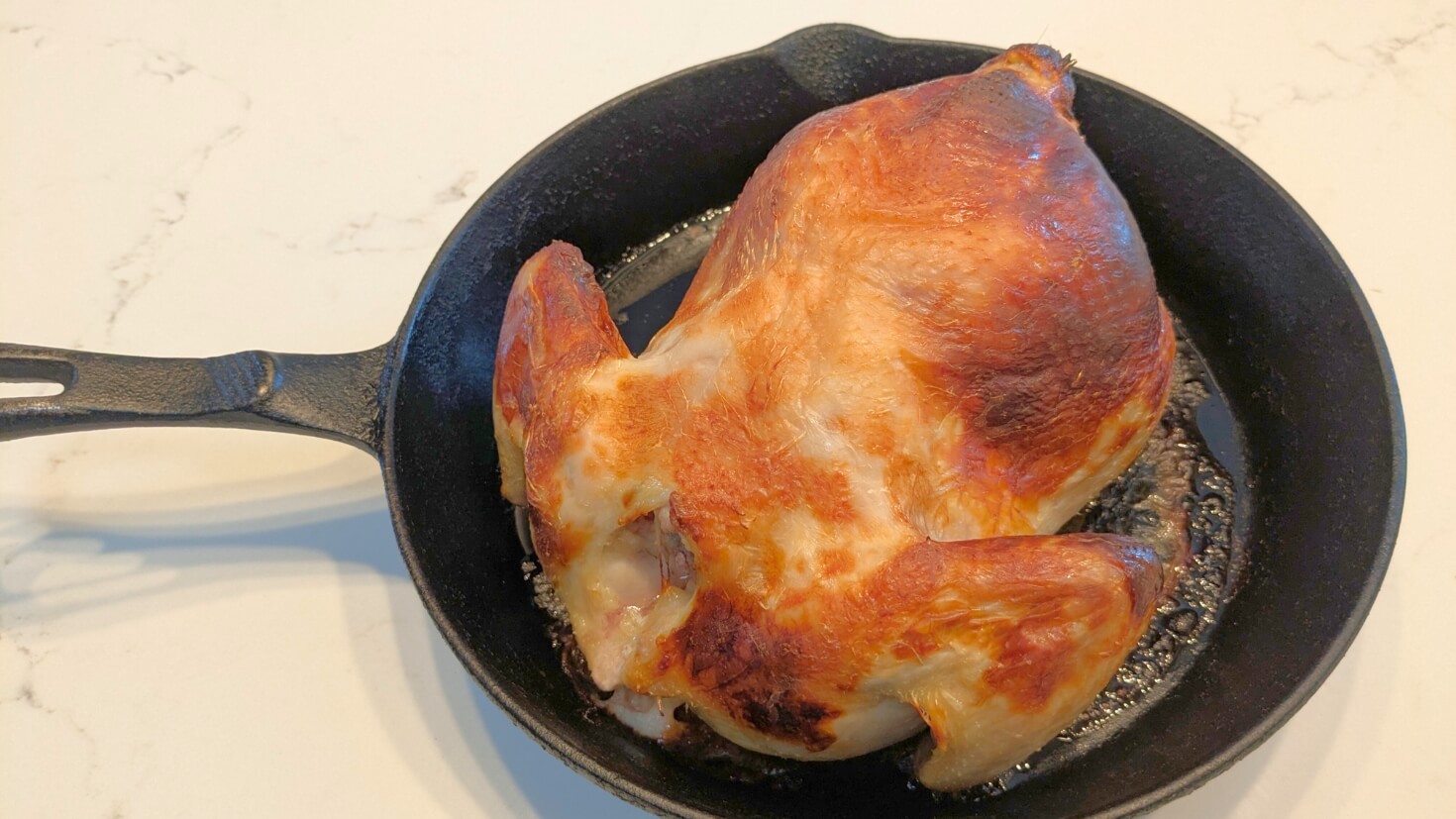
Get the buttermilk roast chicken recipe here.
🇮🇹 The Italian Side: Chicken Soup, Calabrian Style
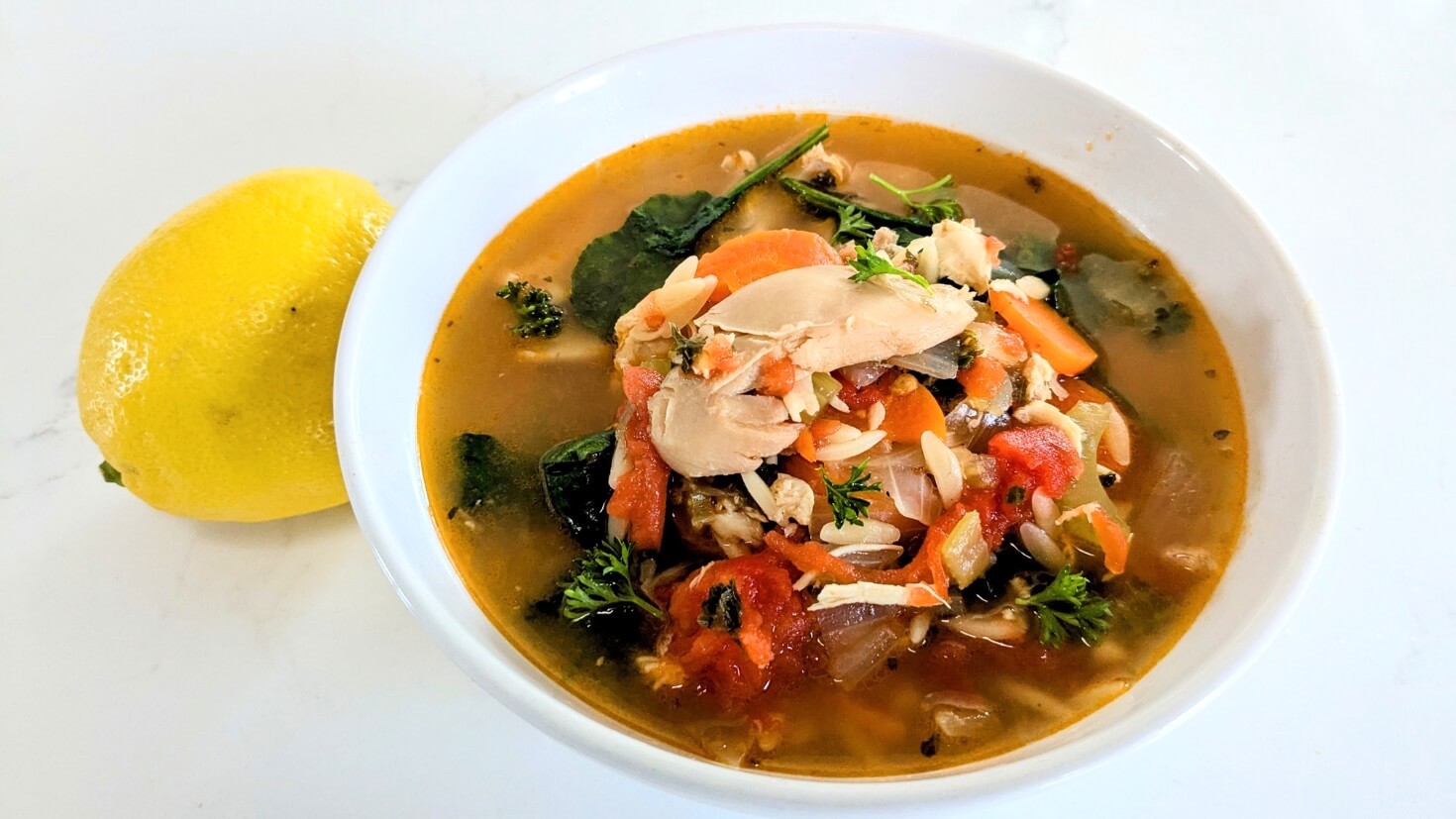
After the roast comes the soup. The leftover chicken and bones became the base for something new, a soup that holds its own kind of meaning.
Before I met my mother-in-law, my idea of chicken soup was the classic chicken noodle I grew up with, or later, the kind with matzo balls. In every form, chicken soup has always been one of my favorite dishes, the ultimate comfort, but never with tomatoes. I never would’ve thought to add tomatoes, so this version is definitely one passed down to me.
Here it is: chicken soup with tomatoes and orzo, Italian style, taught to me by my mother-in-law. Learn the technique here.
🇺🇦 The Ukrainian Side: Varenyky, Old and New

Varenyky have become a significant part of my year. I continue making them each year as part of the traditional Ukrainian Christmas Eve meal my mother-in-law embraced and helped shape. It’s the most meaningful meal of the year.
This year, I decided to try something new: cherry varenyky. Sweet and tangy, wrapped in the same dough, just filled with something different. We didn’t get around to eating them at Christmas, but we finally made them now, and they made a perfect dessert to round out this multicultural celebration. They were better than I expected!
See my cherry varenyky recipe here.
Why It Matters
I honored my mother-in-law through cooking these traditions. She wove cultures together without fanfare, and she brought quiet leadership to her kitchen. In my own way, I’m trying to carry that forward. These meals stretched across seasons, cultures, and generations, and that felt just right.
If you’re honoring someone through your cooking, reviving a family recipe, or trying something new, I hope this encourages you to keep going. The work you’re doing in your kitchen is enough. It matters.
It helps us remember who we are and where we come from. Food carries stories, and making a dish with memory behind it is a way of keeping those stories alive. These small acts connect us and shape the future just as much as they honor the past.
Connect with Evercooked
Do you blend cultures in your cooking, revisit old family recipes, or keep certain dishes for special times of year? I’d love to hear what traditions you’re carrying forward or making your own. Share your story with the Evercooked community using #evercooked.
Or just follow along for stories, recipes, and the traditions that shape our kitchens: